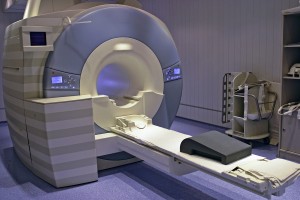
Types of Tests and Diagnosis used for TBIs
The immediate diagnosis and treatment of traumatic brain injury is crucial to the victim’s future health. These injuries usually happen in situations where doctors or emergency responders are at least a few minutes away, each minute passing putting the victim at more risk. That is why there are multiple tests for traumatic brain injuries, ranging from ones that can be done at the scene of the accident to high-tech tests once the victim arrives at a hospital.
It is important to know and understand how and why such tests are performed to ensure that if you or a loved one has possibly suffered a TBI, you are being treated properly and promptly. If one has suffered a TBI and the injury is neglected either in time of diagnosis and treatment, or in proper testing, the negligent party may be held responsible.
TYPES OF TBI TESTS
-

Magnetic Resonance Imaging Glasgow Coma Scale: the initial test for doctors or emergency responders to evaluate the severity of a brain injury. Eye response, verbal response, and motor response is graded on a 15-point scale. The lower the score, the more severe the injury. The higher the score, the less severe the injury.
- CT Scan (computerized tomography): a CT scan can detect bleeding in the brain, skull fractures, hematomas, brain bruises, and the swelling of brain tissue. A CT scan uses multiple X-rays to put together a detailed look into the brain.
- MRI (Magnetic Resonance Imaging): Often used after the victim’s condition has stabilized, a MRI uses magnetic and radio waves to develop a high definition image of the brain.
- Intracranial Pressure Monitor: a probe used to monitor the cranial pressure in a victim’s skull that is the result from brain swelling.
There are also a series of items a witness can observe about the accident or the state of the victim that will help first responders treat the injured person.
ITEMS TO OBSERVE/LOOK FOR WHEN A WITNESS TO A POSSIBLE TBI INJURY
- How did the injury occur?
- Did the person lose consciousness?
- How long was the person unconscious?
- Did you observe any other changes in alertness, speaking, coordination, or other signs of injury?
- Where was the head or other parts of the body struck?
- Can you provide any information about the source of the injury?
- Was the person’s body whipped around or severely jarred?
CONTACT DOLMAN LAW GROUP
If you or a loved one suffered a traumatic brain injury as a result of an accident, and believe the injury was improperly handled, you need to immediately contact the experienced team of brain injury lawyers at Dolman Law Group.
We are up to date on the best forms of testing and technology for the testing and treatment of TBIs, and will ensure that you received the proper care from medical staff. Our attorneys are available 24/7 for all of our client’s needs, and even provide personal cell phone numbers on their business cards. TBIs are serious and can greatly change the day to day life of victims who have suffered from them. This is why quick and proper care needs to administered to all potential victims. At Dolman Law Group, we make sure all negligent parties will be held responsible in the mistreatment of a TBI victim.
Dolman Law Group
800 North Belcher Road
Clearwater, FL 33765
727-451-6900
Google+





